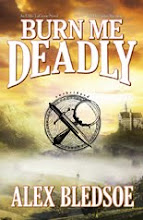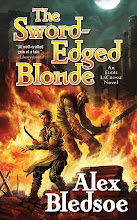
The Holy Goof by the late William Plummer is a biography of one of the greatest literary figures to never write anything substantial--his best-known work is a fragment of a letter. But Sherlock Holmes' words to Watson might also describe Neal Cassady's relationship to Jack Kerouac (On the Road), Allen Ginsberg (Howl), Ken Kesey (One Flew Over the Cuckoo's Nest) and Jerry Garcia (leader of the Grateful Dead): "Some people without possessing genius have a remarkable power of stimulating it."
Cassady was, in simplest terms, an amiable flake in the right place at the right time. He was a poor boy from Denver with a quick mind and a taste for the drug of the moment (marijuana in the 40s and 50s, LSD and benzedrine in the 60s). He is "Dean Moriarty" in On the Road, and the after-the-fact template (as Plummer puts it, "Kesey had dreamed Cassady first, had imagined him into being--with the usual distortions of dreamwork, of course") for McMurphy, protagonist of One Flew Over the Cuckoo's Nest. He is the "secret hero" of the landmark poem Howl. Garcia is quoted as saying, "Until I met Neal, I was headed toward being a graphic artist...he helped us be the kind of band we are, a concert not a studio band."
Here's a film clip of Allen Ginsberg; Cassady shows up at the 3:15 point.
What Cassady had that these other, more accomplished men lacked was a sure sense of his own affect on people: a natural grace. Despite a taste for brutally rough sex, he never lacked for female company. He could talk himself out of most conflicts with authority (although not all: he spent two notable stretches in prison for drugs). He was vastly well-read and self-educated. In other words, he mirrored things that Kerouac, Kesey, Garcia and especially Ginsberg could never manage for themselves.
I wonder how common this is among writers, especially those who grew up in the pre-internet age (alienated kids now have social resources I never had). How many of us seek out and latch onto people who are what we wish we could be? Here, then, is the story of my two Neals.
As a teen, I was a total loser. Girls were as alien to me as anything George Lucas put in his cantina. But I became friends with Willie*, who had an awesome car, all the girls he wanted, was a basketball star and knew all the places underage kids could get beer. In short, for a teen nerd in the swamps of west Tennessee, he was the epitome of natural grace. He did his best to teach me about cool music (he was into the Bee Gees before Saturday Night Fever) and how to dress to impress the ladies. Needless to say, as adults we have nothing in common; in fact, when I saw him last year at my stepfather's funeral (the first time in at least twenty years), he was kind of creepy and pathetic, still talking of nothing but his glory days as a teen.
In college, I became friends with Jack*, who was tall, handsome, played guitar and had a wicked sense of humor. Everything he did seemed to be effortless. He could talk to any girl, make jokes with any guy, and was never socially awkward or off-balance. Even when falling-down drunk, he was cool. He encouraged my first attempts at writing something more substantial than a newspaper story, and we made grand plans for prose/music endeavors. Unlike Willie, Jack was also a decent guy, which made it impossible to be jealous of the ease with which he passed through life. He contacted me a few years ago and he's turned out to be a solid family man with a respectable career. That made me happy. But I suppose I'll always feel like Millhouse to his Bart.
Because I never aspired to revolutionize literary form like Kerouac and Ginsberg, or effect social change like Kesey, I haven't transposed my Cassadys into any of my writing. But reading about the original Cassady got me thinking about whether other writers of the pre-internet generation had similar experiences. Did we all have our Neal Cassadys? And was this an exclusively male phenomena?
Leave a comment relating your own Neal Cassady, and be entered for a chance to win both The Holy Goof and a signed copy of my book of your choice.
*Name changed for reasons that should be obvious by the end of the post.
















